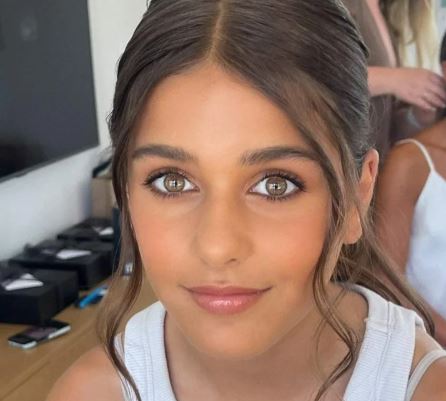
It is seven months since Queenstown girl Meila Davis died of an aggressive bone cancer. She was just 13.
Her mother, Kristin Davis, said Meila wanted to die at home among the people she loved.
"She hated being in hospital, so that was never going to be an option. She wanted to be at home. That was her happy place."

"The hospital team, they were nice, they were sympathetic. But you could only call them nine to five. And children don't just die between nine and five."
The family was blessed to have an "amazing" GP, but she was not a paediatric palliative care specialist, Davis said.
Having Dr Amanda Evans from Rei Kōtuku come on board was the turning point for them.
"I would call Amanda at two in the morning and say 'This is happening, what do I do?' because the pain relief wasn't working and she's in agony pacing the floor crying, and she would guide me as to what I could give her safely."
Meila was adamant that she wanted to be "present" for her final days, as well as pain-free.
Evans worked with the local nursing team and her GP to manage Meila's pain.
"You don't want to rob them of time by taking them to the point where they can't even communicate because of the pain relief.
"You want them to be able to live every moment until their last."
During the past 2 1/2 years, the privately funded-charity has looked after 90 children at the end of their lives, and supported 40 bereaved siblings and their families.
However, the funding - from a private philanthropist - is due to run out early next year.
Davis said she was gutted over the lack of funding in the Budget.
"To think other children wouldn't have that just breaks my heart. It infuriates me actually, because they're not even asking for a huge amount of money.
Budget a "missed opportunity" - specialist
Rei Kōtuku estimates $8 million would be enough to establish a four-hub nation-wide 24/7 specialist service.
Evans said a functioning service would save the health system money in terms of reducing hospital admissions, but more importantly, it would let children live their best lives until the end.
"This could have been addressed now because we know there are children dying now in pain and distress because they're not getting the specialist resource they require."
The Budget was a missed opportunity, she said.
"No specialist paediatric palliative care service should be reliant on charitable donations.
"This is a service that around the world is provided in hospitals and paid for by the government and that's what has to happen in New Zealand."
Families and providers were still waiting anxiously for Health NZ's response to community consultation in April, which involved more than 1700 submissions from clinicians, whānau, and even children.
They had not been given any timeline for next steps, she said.
More work to do - Health NZ
Te Whatu Ora's acting national director for planning, funding and outcomes, Jason Power, said it was now reviewing all submissions "carefully".
"This feedback will help shape final recommendations and advice on how we can strengthen and better support paediatric palliative care services across the motu."
Dedicated paediatric health professionals were providing exceptional care every day to children with life-limiting conditions, he said.
"While we acknowledge much great work is happening, we know there are areas where the system can do better.
"We are committed to improving access to paediatric palliative care so that every child, regardless of where they live, can receive the care they need."
Meanwhile, families could be reassured that support was available, he said.
"Children with palliative care needs are being cared for by local clinical teams, including paediatricians, hospital services, and GPs. In some cases, this includes support from local hospices."
The National Palliative Care Work Programme would shortly be asking for public and sector feedback on the adult model of care, before establishing working groups.
It planned to finalise both the paediatric and adult models of care by the end of the year.
Health Minister Simeon Brown said he was waiting for Health NZ's report, "with a view to Budget 2026".
"As a father of three young children, I hear what they're saying and look forward to continuing to work with them."
However, Davis said next year would be too late for some children.
"Why is it okay for these children to suffer? That's how I feel about this recent Budget. We have to do better, better for these kids."












